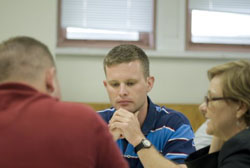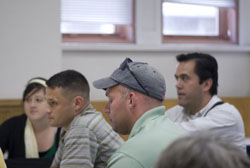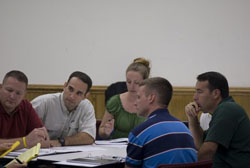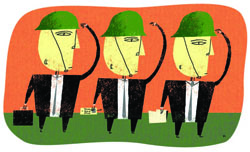Learning from the Military
People are often surprised to learn that Teachers College provides leadership training to cadets at
Take the notion that effective leadership is about encouraging teamwork. It’s a central tenet of organizational psychology that the best leaders bring good people together to get things done. Yet while many organizations pay that idea lip service, in our individualistic society the military is one of the few that truly walks the talk. Say what you will about the politics of why we go to war: in the Army, the focus is on the unit accomplishing its mission, never on the individual. In the education world, by contrast, researchers and policymakers wage ideological warfare; teachers’ unions battle municipal education departments; and school board members wrangle with each other. Within most education schools (and other academic institutions), there is little sense of collective purpose. Programs and departments are as “siloed” as any fiefdom within corporate
The paradox here is that American education is vital precisely because it empowers the individual to think independently—yet that same prerogative threatens to undermine the greater enterprise of education itself. Total centralization is not the answer, but we must be more centralized about how we organize schools and districts, create standards and curricula, and transmit knowledge and skills.
Science may ultimately achieve that end. Perhaps, as more is understood about cognition and learning, education will increasingly rest upon a codified body of knowledge. Until then, we must find ways to come together for the greater good. Otherwise, like an army that has not adapted to field conditions, we will forever stand accused of fighting the last war.
W. Warner Burke is TC’s Edward Lee Thorndike Professor of Psychology and Education, and Chair of the Department of Organization and Leadership.
Published Wednesday, Jan. 14, 2009



